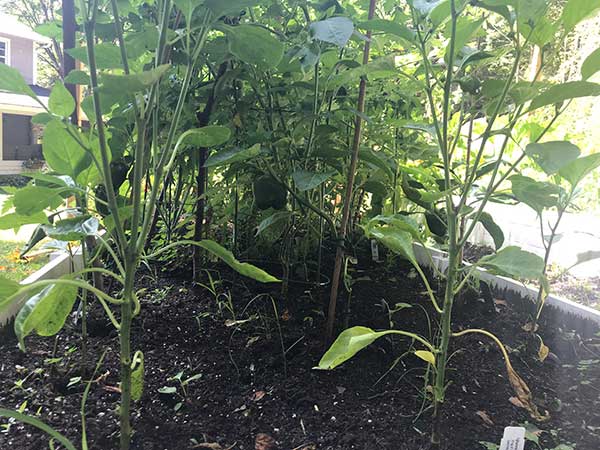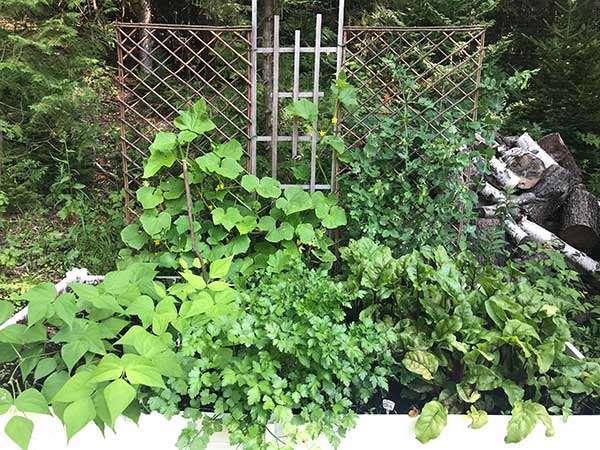It can be tempting to clean things up and get rid of the dead or dying biomass from crops after their harvest. Many people dispose of organic debris by either burning it, burying it or by throwing it into the waste container at the end of the road. But, there are many advantages to leaving these materials in the garden.
Reduces weed infestations

By leaving leftover vegetable material on the ground, you’re burying all the weeds that would otherwise sprout and spoil the whole plot.
This is a chemical-free way to smother the weeds and fosters their decomposition, along with that of the rich biomass you laid on top.
After some time, your garden’s soil will become enriched thanks to the added organic matter that you barely broke a sweat adding!
Extends subterrene biodiversity
The increased moisture, an abundance of humus, and the extra darkness promoted by the cover of residue will be what most microorganisms and insects relish.
Soils that are often turned and whose texture, pores, and intrinsic life is broken apart more than a couple times per year tend to be poor. By making good use of spare biomass, the conditions will promote growth both above and under the ground.
It is essential to understand that what was once alive under the sun will always translate into similar value once it’s dead and decomposing within the earth.
Stalls the loss of organic matter
While leftover plant material adds organic matter to the soil, it also helps in the opposite way.

The sun, wind, rain, and even animals will have a harder time ruining the top layer of soil. The oxygen, which is the chief ingredient in the degradation of organic matter, will also be less present because of the residue cover.
Increases soil temperature
Covering the soil with crop biomass helps trap the heat of the sun, which leads to better results in the garden, even in the colder seasons.
It will increase the growth rates of beneficial subterranean organisms and seedlings, which, despite being eager to sprout, many times don’t get the warmth they need.
When the opposite is true, like the soil getting too dry during a period of drought, this natural mulch will act as isolation, keeping the heat out for the most part.
Prevents erosion of the ground
When torrential rain hits, the soil becomes vulnerable, and many of its nutrients and some of its bulk can be washed away.
A layer of plant debris can help reduce the impact of raindrops by allowing for better infiltration, and as a result, less runoff.
Helps keep the soil moist

Just like a greenhouse has a ceiling that keeps the interior more tepid and moist, dead biomass can be used to roof the earth. This will limit the water’s evaporation when the days get too hot.
Also, watering through this layer will have the same effect it had against the rain; the irrigation will seep more slowly, without damaging the surface of the earth.
Just be careful about how this cover and enhanced dampness might also encourage some rot and disease. In general, though, it’s always a good thing to maintain a moister environment in the garden.
Benefits soil structure
All the green matter that is added to the soil lightens up its texture. Through natural incorporation and as the material decomposes, residue mingles with what’s beneath it.
It also helps if you occasionally til or hoe the terrain, without breaking it up too much.
Living material is so inclined to give back. Who doesn’t want increased fertility and functionality in the garden?